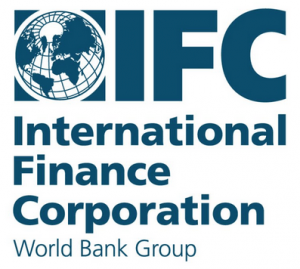IFC to promote leasing across Africa’s potential $80b market
 The International Finance Corporation (IFC), a member of the World Bank Group on Thursday launched the Africalesase, an association that will promote leasing across sub-Saharan Africa.
The International Finance Corporation (IFC), a member of the World Bank Group on Thursday launched the Africalesase, an association that will promote leasing across sub-Saharan Africa.
The group would help smaller businesses from transport companies, farmers and retailers gain the financing they need to grow and create jobs.
The event that was organized by IFC and Swiss State Secretariat for Economic Affairs (SECO), also convened regional leasing investors and experts to promote and discuss Africa’s potential $80 billion leasing market.
IFC also unveiled the first Africa Equipment Leasing Handbook at the event. The handbook estimates that sub-Saharan Africa’s current equipment leasing market stands at $40 billion -and expects it to at least double in size.
Mr Alejandro Alvarez de la Campa, Practice Manager for the World Bank Groups Finance, Competitiveness, and Innovation global practice, speaking at the event said leasing continued to help transform the ability of Africa’s smaller businesses to acquire the use of equipment for economic activities.
Mr Campa said, “Working in 25 countries in sub-Saharan Africa, IFC’s Africa Leasing Facility has helped mobilise $257 million in investments into the Regional leasing sector, and delivered leasing training to about 24,000 people, including; the government official, financial institutions, and small business owners”.
Abdallah Benhamida, Africalease President said, the Regional equipment leasing market was ripe for investment, particularly in the agriculture, infrastructure, medical equipment and renewable energy sectors.
He said Africalease would endeavour to build a cohesive network to help unlock the region’s $80 billion potential adding that smaller businesses employed about 60 per cent of those with jobs in emerging economies but many were held back by a lack of access to finance.
Mr Matthias Feldman, Deputy Head of Mission, Embassy of Switzerland in Ghana speaking on the topic, “Leasing as a tool to increase access to finance said access to finance was critical for economic development.
“It allows businesses to grow and ultimately make important contributions to job creation and reduction of poverty and inequalities. However, in the developing world, 200 million businesses lack access to credit.
“They face many hurdles that are often difficult to overcome: to access credit, they should present a credit history or some form of collateral that they often do not have. The challenge is particularly acute in much of Sub-Saharan Africa, where some 60 per cent of the population is employed in the small and medium-sized enterprise (SME) sector”
Mr Feldman said the percentage was significantly higher when informal SMEs are included, many of which would not qualify for traditional bank financing.
“At SECO, we work to promote sustainable inclusive growth and strengthen our partner countries’ resilience and response to economic and financial crises.
“We believe in the power of increasing access to finance to enable more business owners to create sustainable and successful businesses that are able to weather external shocks and create jobs,” he said.
Ms Ronke Ogunsulire, IFC Regional Country Manager for Ghana, Benin, Burkina Faso, Guinea, Niger, and Togo said, leasing provided the African business owners a viable financing solution that enabled them to start using a productive asset to help build sustainable businesses.
She said supporting leasing market development was one way in which IFC was contributing to the World Bank Group’s twin goals of eliminating extreme poverty and creating shared prosperity.
“Over the past six decades, IFC has invested more than $25 billion in African businesses and financial institutions, while our current portfolio exceeds $5 billion.
“IFC will continue to promote sustainable private sector activities and mobilise capital from other investors who invest alongside IFC in critical sectors,” she added.
Source: GNA
